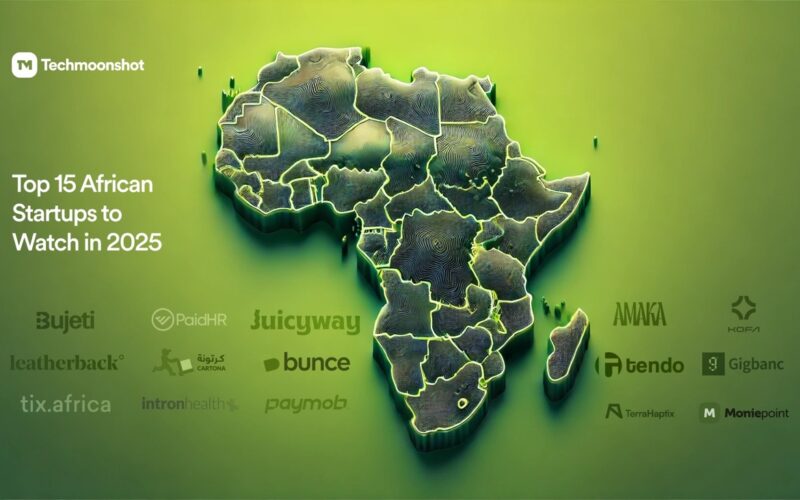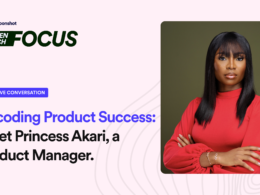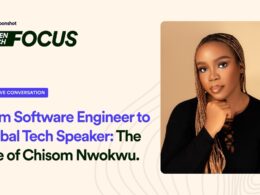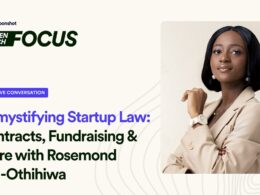Originally from Houston, Texas, and now based in New York City, Alexandria has spent the past nine years carving out a remarkable career in the tech industry. A proud University of Houston alum (Go Cougs!), she began her journey with Amazon in operations through a college recruitment program. From there, she pivoted to account management before discovering her passion for program management—a field where she’s made significant strides ever since.
Now a Senior Program Manager at Google, Alexandria combines her expertise in process improvement and program leadership to drive impactful projects. Outside of work, she enjoys being happily married and sharing her life with her adorable puppy, Kygo.
In this exclusive conversation, she shares insights into her career path and her dedication to empowering others to achieve their professional goals through coaching and job preparation.
Can we get to know you?
Sure! I’m Alexandria, originally from Houston, Texas, and now calling New York City home. Over the past nine years, I’ve built a fulfilling career in the tech industry. I’m a proud University of Houston alum—Go Cougs!—and my professional journey started with Amazon in operations through a college recruitment program. From there, I transitioned into account management before finding my true calling in program management, where I’ve been thriving ever since.
Currently, I’m a Senior Program Manager at Google, leveraging my skills in process improvement and program leadership to deliver meaningful projects. On a personal note, I’m happily married and enjoy life with my adorable puppy, Kygo.
What challenges have you encountered in your role, and how have you successfully navigated and overcome them?
One of the biggest challenges of being a program manager is working with a diverse group of stakeholders and relying on their insights and expertise in their specific areas. This becomes even more complex when working for global companies like Google and Amazon, where stakeholders are spread across different regions, each with unique and region-specific needs.
The challenge lies in gathering all this input, synthesizing it, and prioritizing it effectively. My role requires me to ensure that every voice is heard while building solutions that balance the broader, cross-regional impact with localized needs. It’s about finding the right approach to solve problems for larger groups while also addressing region-specific issues, ensuring that no one feels overlooked, despite the varying challenges each region may face.
Beyond your role as a Program Manager at Google, you also assist with resume and interview strategies. How has that experience been for you?
One of the biggest issues I see on resumes is the lack of emphasis on impact. By impact, I mean clearly quantifying the results of your work—whether it’s time savings, cost reductions, increased adoption, improved efficiency, enhanced quality, or any other measurable outcome. Each bullet point on your resume should reflect this.
Another common mistake is presenting examples that are too high-level or vague. For instance, instead of saying, ‘Completed weekly reports for senior leadership,’ you could say, ‘Developed a reporting process that informed a new strategic plan, resulting in a 10% increase in revenue.’ Both describe the same task, but the latter highlights the tangible impact and value added to the organization.
I always remind people that recruiters and hiring managers need to see the ‘so what’ of your accomplishments. It’s not enough to say you built reports or coded a program—you need to explain how those actions contributed to business outcomes. Connecting the dots between your work and its impact is crucial, and failing to do so is one of the most common gaps I see on resumes.
How is the hiring process evolving in the tech industry, and what should job seekers be prepared for?
These days, companies often use applicant tracking systems (ATS) to screen resumes, and many now request LinkedIn profiles as part of the application process. This is a shift from when I was applying, where it was solely about the resume. Now, it’s crucial to keep your LinkedIn profile as updated and polished as your resume since recruiters and hiring managers are likely to review both.
Another trend is the increased use of pre-screening assessments or questionnaires to evaluate your ways of working. My tip here: treat these assessments as critical parts of your application process. They’re not just optional—they’re key steps in how companies decide who moves forward.
Lastly, one of the most important things is ensuring that your resume has a clear narrative. When someone reads it, they should immediately understand the role you’re targeting. Sometimes, I’ll see resumes where it’s unclear—are they pursuing marketing, coding, or project management? Your resume needs to align with the job you’re applying for and tell a cohesive story that matches the role.
What drives you know, your passion for helping others succeed in their job searches?
Giving back has been a core value instilled in me from a young age, thanks to my mom, who always emphasized the importance of being of service to others. That mindset has stayed with me throughout my life and career.
Working in an industry focused on increasing diversity in meaningful ways has given me a unique opportunity to channel that value. I like to remind others that I’ve been in their shoes—I’ve gone through the application process, cold-applied to roles, and refined my resume countless times. Sharing those experiences and lessons learned feels incredibly rewarding.
Additionally, having been on the other side of the process—conducting interviews, reviewing resumes, and working within the system—I’ve gained insights that I believe can be genuinely helpful to others. It’s fulfilling to use my experiences to support and guide people navigating similar challenges.
What piece of technology or tool is absolutely essential for your daily work right now?
Oh my gosh, I’d have to say Gemini, our AI tool. I use it every single day—it’s indispensable! Whether it’s helping me make my emails more concise, building out decks, drafting one-pagers, or creating Google Sheets, Gemini has become a core part of my workflow. Since it’s embedded into our workspaces, it’s incredibly easy to access and navigate.
I even start my day with it—’Good morning, Gemini!’—and dive right in. I’ll ask it to improve or review something, make content more complete, or ensure I’m focusing on key points. It’s by far the tool I rely on the most. The fact that it integrates seamlessly with tools like Google Docs, Slides, and Sheets makes it an essential part of my daily routine.
What are some of the misconceptions people have about working at a big tech company like Google?
Many people assume you need to be technical to work at big companies, but that’s not true. I’m not technical—I don’t code or write scripts, and those aren’t my strong suits. So, first and foremost, you don’t need to be technical to succeed in these environments.
Another thing that’s often overlooked, based on my conversations, is the power of soft skills. In my day-to-day work, skills like communication, collaboration, stakeholder management, and empathy are far more critical than technical expertise. A huge part of my role involves understanding people’s needs, addressing concerns, and fostering open communication.
As a program manager, I work across functions and teams, each with different goals and OKRs. Being able to connect with people on a human level and build genuine rapport is essential—not just for creating a positive work environment but also for successfully leading and managing programs. Soft skills are invaluable for navigating these dynamics and have been instrumental in my career.
So, for anyone who thinks they need to be highly technical to succeed, I’d say this: soft skills are just as important, if not more so, in many roles.
What’s your go-to productivity tip or habit that you swear by?
One thing I’ve really embraced this year is calendar blocking. In the past, I’d create to-do lists that just kept growing and felt chaotic because I didn’t prioritize tasks or allocate specific time for them. My therapist, Amanda, suggested I block out time for specific tasks, rather than just generic ‘focus time.’ For example, instead of blocking an hour for focus, I’d schedule something like ‘write one-pager for this project’ or ‘complete data analysis for this issue.’ That was a total game changer—it helped me allocate my time more effectively and ensured I was focused on the right things.
Another key tip is knowing your productive hours. For me, mornings are when I’m most productive, so I try to reserve that time for deep work and avoid scheduling meetings. Of course, with colleagues across different time zones—some 10 hours ahead, others on the West Coast—it’s not always easy. But I try, especially on Mondays and Fridays, to protect my mornings for high-focus tasks and push meetings to later in the day.
What does a typical day in your job look like?
My typical day starts with getting in before 9 AM. I love being in the office because I’m more productive there. First, I check emails and pings to catch up on anything urgent, especially since many people work overnight while I’m sleeping. Next, I review my calendar to see the meetings I have and make sure any agendas are up-to-date. If they’re not, I’ll update them to ensure everything’s clear before the meeting. I grab a coffee in between, then dive into a mix of meetings, presentations, and data analysis.
I lead a lot of programs, so I spend time putting together decks for leadership and doing my own data analysis to stay on top of any pain points. This week has been quieter, but I always try to stay focused on reviewing data and ensuring I’m solving the right business problems.
Tuesdays through Thursdays are packed with meetings, so I block out time to handle action items. On quieter days, I can focus on writing or strategic thinking, which is a great opportunity to reflect on execution and measure success.
If you’re not working, how do you relax?
I love going for runs – it’s my time to decompress. I usually listen to podcasts, whether it’s a church sermon or something like The Skimm, where they interview high-ranking women in leadership across different industries.
Another thing I also enjoy is hosting. My husband and I love having people over for dinner, pre-games, or casual get-togethers. On top of that, I’m a fan of sleep – sometimes a good nap is all I need. Reality TV helps me unwind and turn off my brain for a bit.
There are also days when I just need to sit by the water, take it all in, and recharge. Between meetings, conversations, and staying present, I need those moments of quiet to recharge my battery.
What is that thing in the tech ecosystem that you’re most excited about right now?
I’m sure you’ve heard this from many people, but the AI craze is real. I started using Gemini in July of last year, and seeing how much it has improved since then is mind-blowing. The speed and quality of responses have improved so much – it’s really exciting. I remember when I first heard about AI, I thought, ‘I won’t have any use for this.’ I didn’t get it at all. But once I started using it, I realized it’s not replacing me; it’s just making me so much more efficient in my day-to-day work.
It’s especially impactful since I work with Google Workspace – Docs, Sheets, etc. I want to keep building my skills in AI because it’s evolving so quickly, and that’s what excites me the most about it.
So what advice would you give a younger version of yourself?
It’s okay to ask for help. In a new environment, you might feel pressured to know everything, to contribute value, and avoid being a burden. I wasted so much time trying to figure things out alone when I could have gotten answers in minutes by simply asking. If I could go back, I’d tell young Alexandria that it’s okay not to have all the answers. Asking for help actually makes you feel more empowered.
Now, when I’m in a meeting, I’m comfortable saying, ‘I don’t know, but I’ll take this as an action item.’ People can sense when you don’t know something, and it’s okay. Not knowing doesn’t make you any less of an employee. Asking for help earlier would have saved me so much time, preventing me from going down unnecessary rabbit holes. Plus, when you ask someone who knows the answer, you gain valuable context that you wouldn’t have found on your own.
Are there any books, podcasts, or resources that have influenced the way you work and that you’d recommend?
For podcasts, I recommend The Skim, which interviews women leaders across various industries, from CEOs to founders to VPs. I love hearing their perspectives. The Verge is another favorite, offering insights on tech trends, product launches, and developments across companies.
As for books, Simon Sinek’s Start with Why is amazing and a must-read. I also enjoyed The Startup of You, by one of LinkedIn’s founders, which encourages you to think of yourself as a startup. It helps you reassess your value, and skills, and how to pivot when necessary. Honestly, I enjoy any self-help book, especially those with practical tips on time management. My friends suggest I branch out into other genres, and I’m working on it, but I’m a huge fan of books that offer actionable advice.
Thank you for talking to us
Thank you for having me, it’s a pleasure.












